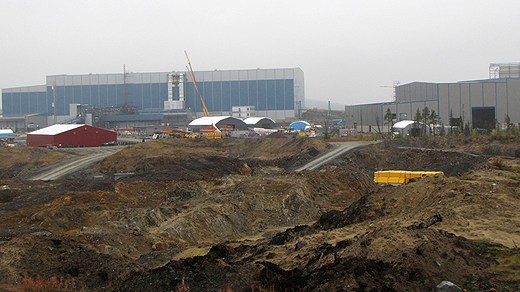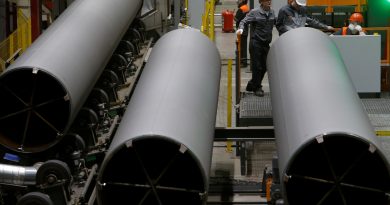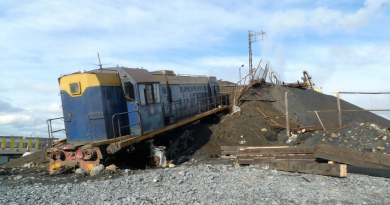Six of ten mayors in northeast Sweden support tax on mining companies
 Now to the booming iron ore industry in Sweden. The minerals are in high demand around the world, meaning companies are opening up more mines and hiring more people. But should they also be compensating the regions they operate in? When asked by Swedish Radio, majority of mayors in mining towns around Sweden say they support a mining tax.
Now to the booming iron ore industry in Sweden. The minerals are in high demand around the world, meaning companies are opening up more mines and hiring more people. But should they also be compensating the regions they operate in? When asked by Swedish Radio, majority of mayors in mining towns around Sweden say they support a mining tax.
In Norbotten, Sweden’s northeastern province, a county home to Europe’s largest iron ore production, eight out of ten municipal mayors want mining companies to pay an extra fee.
“The companies extract everything there is in the municipalities without sharing any of the fruits apart from job opportunities and salary tax. We do not get any of the natural resources,” says Tommy Nyström of the Social Democrats, mayor of Gällivare.
Last year, Australia passed a tax on iron ore and coal mining companies. The money raised by the tax is meant to help lower Australia’s budget deficit. Poland has also introduced a mining tax and Finland is considering it.
The global boom in iron ore extraction has raised questions in Sweden about whether companies are getting too good a deal.
Both domestic and foreign companies are exploring the possibility of extracting iron ore in over a hundred Swedish municipalities. Out of the 89 mayors who answered Swedish Radio’s survey, 60 percent said they were in favour of a mining tax.
The Social Democrats’ Åsa Eriksson, mayor of Norberg the Västmanland region, says companies need to take responsibility when the boom goes bust.
“In Norberg, we know what happened in 1981 when the last mine closed down. There was not enough preparedness for that change. I believe the buffer for those situations has to come from mining profits. An example could be how Norway uses its oil money to set up funds for pensions and other savings,” Eriksson says.
Iron ore companies in Sweden do pay a compensation to the state for extracting minerals. The rate is small – less than a thousandth of the total value of the annual extraction by every company – but during 2012 that raised around one million kronor for the state.
A new mine has recently opened up in the far northern town of Pajala. The municipality is planning to take out loans of 340 million kronor to spend on housing and infrastructure as workers begin to settle in the city.
That does not mean mayor Kurt Wennberg of the Social Democrats wants a bigger slice of the industry’s cake. He says that would deter companies from opening mines in the future. “The mining companies come to Pajala and start paying taxes here. That’s the way we benefit,” he tells Radio Sweden.
But he is in the minority. Only ten percent of the mayors surveyed said they opposed a mining tax. “Companies, tourists and forestry businesses disappear from regions where mines open up for extraction,” says Karin Paulsson, mayor of Berg municipality in Jämtland region. “That has to be compensated in some way.”
For more stories from Radio Sweden, click here



